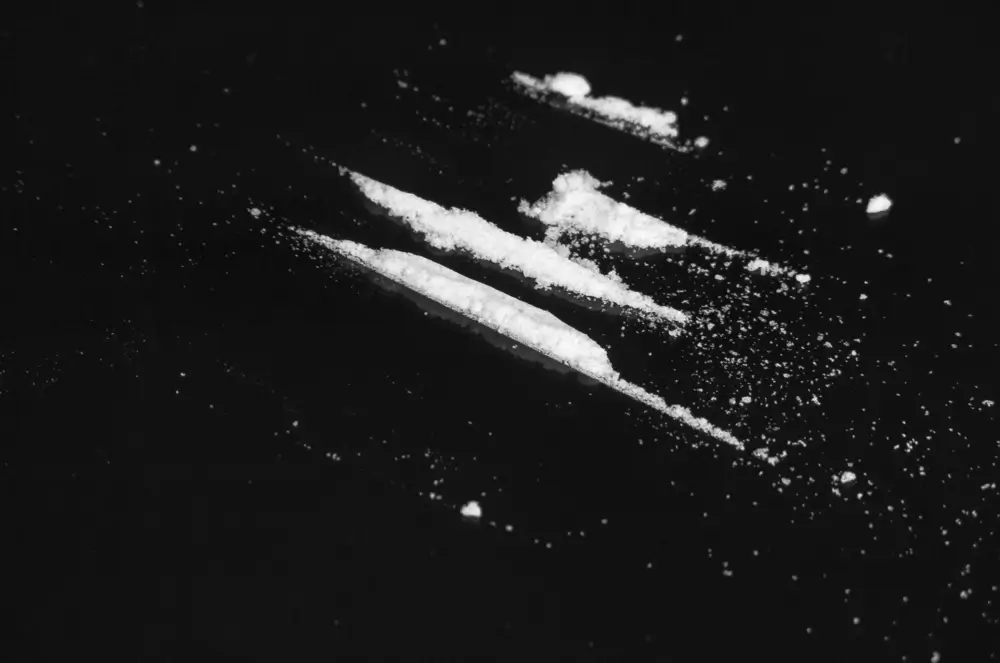If you are considering cocaine rehab in Los Angeles for yourself or a loved one, the process can seem overwhelming, but it is crucial to get help. Cocaine abuse and addiction are serious problems that can cause substantial harm to a person’s mental and physical well-being. It is imperative to get professional help for cocaine addiction to beat the addiction and to stay away from the detrimental effects of long-term cocaine consumption. Continue reading to learn about the dangers of cocaine abuse, the many treatment options available, and how the professionals at Launch Centers in Los Angeles can help.
Although addiction is a chronic disease, cocaine addiction can be treated and managed with the right treatment. That is why receiving professional cocaine addiction treatment is imperative—to not only improve your life, but potentially save it.
Cocaine Addiction Explained
Despite the general awareness of Cocaine’s addictive nature, thousands of people are still attracted to it. On average, 1,800 Americans attempt the drug each day. Any use of Cocaine is deemed as misuse because it is an illicit substance. Cocaine is a stimulant that impacts the brain by increasing dopamine, a neurotransmitter related to joy and reward. As time passes, Cocaine detrimentally influences every part of the body with a possibility of major long-term repercussions. It can prompt alterations to genetics in neurons, brain cells, and proteins, among other lasting impacts.
Although cocaine is a highly addictive substance, it may be difficult to identify an addiction to it. However, experiencing cravings for cocaine and ignoring the repercussions that come with it are strong indications of dependence. The psychological addiction is usually the most difficult aspect to get over, although there are unmistakable physical manifestations of addiction too. Someone who abuses cocaine often will develop a dependence, meaning they need to have it to feel normal. Once dependence has been established, a tolerance will form and withdrawal symptoms will appear when use is stopped. Once someone has become addicted to cocaine, it may be nearly impossible to quit. This is because cocaine increases the level of dopamine in the brain abnormally, eventually reconfiguring the brain reward system.

How Addictive is Cocaine?
Cocaine is a powerful stimulant and it is very addictive. It has a direct influence on the reward pathway in the brain, and in many people, even a single use can motivate future abuse.
Cocaine interferes with the reuptake of dopamine, a neurotransmitter that is linked to elated emotions, satisfaction, and exhilaration, allowing it to remain in the brain and induce extreme euphoria. When the effects of the drug start to wear off and dopamine is taken back in, the brain is too depleted to manufacture more dopamine unassisted; this results in low spirits, fatigue, temper fluctuations, and other preliminary withdrawal signs. To dodge these feelings, the person may right away consume another dose of cocaine, a course of action called reinforcement.
Studies have also revealed that cocaine addiction has the ability to alter a person’s genetic structure. This alteration is due to the activation of genes that produce a protein called delta-FosB. The production of this protein increases the capacity to bind to glutamate receptors, thus heightening an individual’s susceptibility to the pleasurable effects of the drug. As a result, the physical change reinforces the need to continually take cocaine.
Signs of Cocaine Addiction
The use of cocaine brings about a sensation of joyfulness that is coupled with physical indications such as an accelerated heart rate, perspiration, and an enlargement of the pupils. It could also generate other negative effects such as anxiety, feeling of bugs on the skin, delusions, and paranoia. A few of these feelings may continue, or even get stronger, during the crash as the euphoria starts to dissipate. Indications of cocaine addiction go beyond physical signs and also comprise behavioral and emotional signs. Indicators of cocaine addiction include:
- Hyperactivity
- Mood swings
- Weight loss
- Extreme bouts of confidence
- Increased sociability
- Frequent nose bleeds
- Loss of interest in things once enjoyed
- Unusual or erratic sleeping patterns
- Consistent runny nose
- Isolation
- Legal issues
- Financial struggles
- Aggression
- Neglecting responsibilities
- Withdrawal symptoms when use has stopped

Cocaine Withdrawal
When somebody is in the process of discontinuing cocaine use, they can experience a variety of withdrawal symptoms, from physiological to psychological and behavioral. The withdrawal symptoms related to stimulants typically are not as dangerous as those that come with substances such as alcohol, benzodiazepines, or opioids. It is important to note, however, that cocaine withdrawal symptoms and their severity vary depending on factors such as the average dose of cocaine taken, the total time of cocaine use, any other drug use, any pre-existing medical conditions, and overall health. Common cocaine withdrawal signs and symptoms include the following:
- Depression
- Irritability
- Muscle aches
- Fatigue
- Poor memory recall
- Increased appetite
- Intense cravings
- Anxiety
- dehydration
- Insomnia
Dangers of Untreated Cocaine Addiction
There are many issues linked to being addicted to cocaine, and they can vary depending on how you consume it. If you snort it, you may experience a thinning or deterioration of your septum nasi. Injecting cocaine increases your chances of a serious skin infection, such as bacterial staphylococcus. Additionally, you may get cellulitis, necrotizing fasciitis, and systemic infection. Plus, sharing needles can lead to a heightened risk of HIV and hepatitis B.
Cocaine consumption has been linked to kidney damage and certain rheumatic conditions. The biggest danger associated with being addicted to cocaine is overdose, which results in cocaine poisoning. Cocaine has a negative effect on every organ in the body, however, its most threatening and fatal outcome is on the cardiovascular system.
An abnormally fast heart rate (tachycardia), a heart rate that is not regular (arrhythmia), and extremely high blood pressure (malignant hypertension) can all result in a heart attack, stroke, or even death. Additionally, when someone overdoses on cocaine, it can also cause acute kidney failure, which is a medical emergency that can be fatal.
Cocaine Overdose
The National Center for Health and Statistics reported that in 2018, over 14,600 individuals passed away due to an overdose related to cocaine use in the United States. This number has been increasing since 2013. If you are able to identify the signs of a cocaine overdose, you may be able to save someone’s life by calling 911 immediately. Cocaine overdose signs include:
- Chest pain
- Increased core body temperature
- Seizures
- Nausea and vomiting
- Difficulty breathing
- High blood pressure
- Irregular heartbeat
- Intense agitation
- Hallucinations
- Unconsciousness
- Stroke
- Cardiac arrest

Do You Need Cocaine Rehab?
If you or a loved one is habitually using cocaine, it is essential to seek out treatment for addiction. An addiction develops when the person continues to use the drug in spite of knowing it can damage their health. Dependence may also be formed when the individual is unable to quit using the substance without experiencing powerful cravings and withdrawal symptoms. Some signs that cocaine rehab is necessary include:
- Withdrawal symptoms appear when use is stopped
- Experience intense cravings
- A continuously increasing tolerance
- Consistent mood swings
- Insomnia
- Neglecting responsibilities
- Have encountered legal issues
- Financial burden due to purchasing and using cocaine
Cocaine Rehab in Los Angeles
People struggling with cocaine addiction can find help through a range of treatments, such as behavioral therapy, medicinal treatments, and support groups. Treatment plans for cocaine addiction can be conducted in either an inpatient or outpatient setting, and often involve a mixture of these approaches. If you live in Los Angeles and are looking for treatment for cocaine addiction, there are many avenues for you to explore.
Cocaine Addiction Treatment Options
The specific course of action for treating addiction may differ based on the individual and the substance or activity that they are trying to overcome. Generally, though, most addiction recovery programs include the following steps:
Cocaine Detox
The process of detoxification includes controlling the physical aspects of ceasing cocaine use. This can be accomplished in a clinical setting or in a hospital, depending on the seriousness of the dependency and the existence of any co-occurring medical or psychological health matters. During detox, all traces of cocaine in the system will dissipate and individuals will become physically, emotionally, and mentally prepared for intensive addiction treatment.
Inpatient Rehab
Inpatient rehab for cocaine addiction is a type of treatment that is done at a residential facility. It is usually suggested for individuals who are battling with serious cocaine addiction or those who have not managed to find success with other treatment approaches. During inpatient rehab, the person with an addiction will receive nonstop care and assistance from a team of medical and mental health experts. Treatment often includes a mixture of therapy, medicine, and support groups to help the person overcome their addiction and learn coping techniques for leading a drug-free life.
Outpatient Rehab
Outpatient rehab is an approach to treating cocaine addiction that allows people to receive guidance and therapy while residing at their homes and attending to their obligations. Outpatient cocaine addiction rehab programs usually require consistent visits to a treatment center or therapist, which can include individual treatment, collective counseling, and other types of reinforcement. These programs can be effective for people who have outside support, who are devoted to the therapy program, and who don’t have a severe dependency or co-existing mental health issues that necessitate a more intensive level of care.

Aftercare
Aftercare programs are created to assist people who have finished a cocaine addiction treatment program to stay on track with their recovery and stop a relapse from happening. These programs typically supply individuals with therapies, support groups, and recovery coaching to help them keep their sobriety and make a successful changeover back into their daily lives.
Sober Living
Programs that involve sober living can prove beneficial to those attempting to overcome a cocaine addiction. These programs offer a structured and drug-free environment while the individual takes steps to reach their recovery objectives. Moreover, sober living programs offer additional support such as access to recovery resources, counseling, and support groups. This can be a nice choice for those who have finished a more thorough treatment program and are making the transition to a more independent lifestyle but still wish to be a part of a sober community.
Cocaine Rehab in Los Angeles, California
It’s never too early to seek cocaine rehab in Los Angeles if you or a loved one is in need of help. We at Launch Centers are committed to helping individuals who are battling substance abuse by assisting them in transforming their lives and realizing their full potential. The professionals at Launch Centers can assist you in recovering and reaching your goals with our unique program that blends educational and career components with health care and comprehensive treatment to help you become ready for successful rehabilitation and a rewarding, sober life.
If you need help and would like to learn more about our many services and treatment options, contact a specialist at Launch Centers today. Recovery is closer than you may think.





